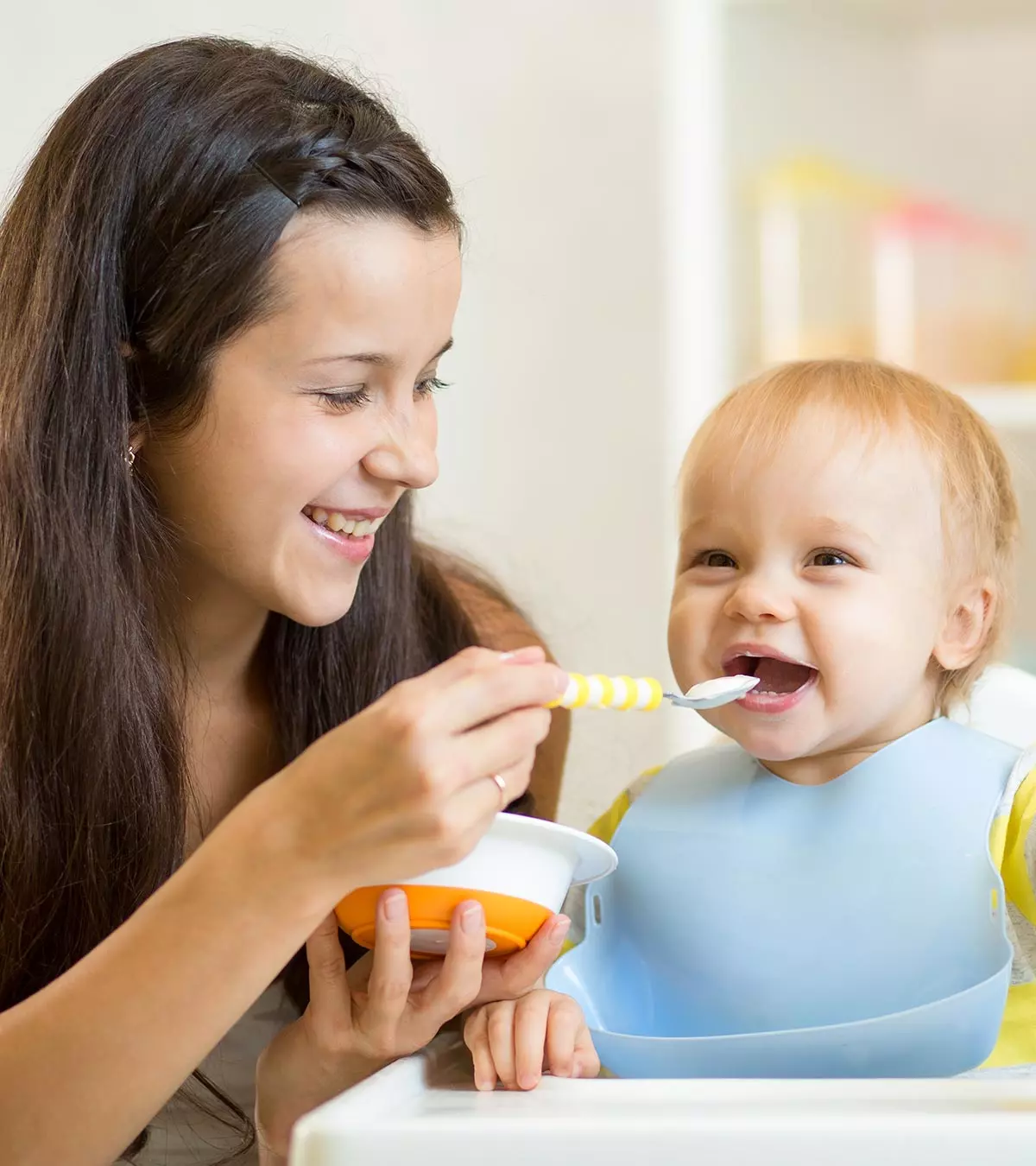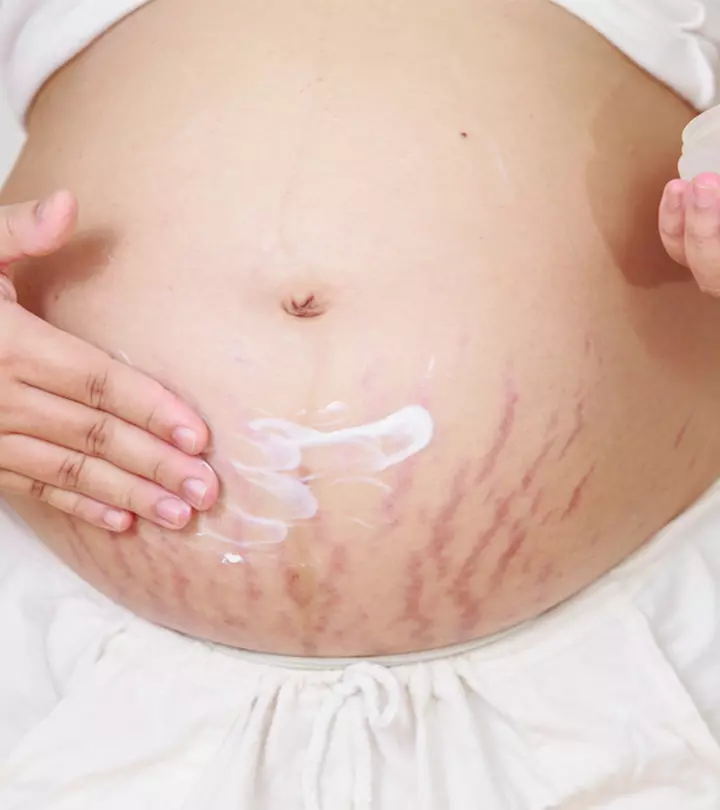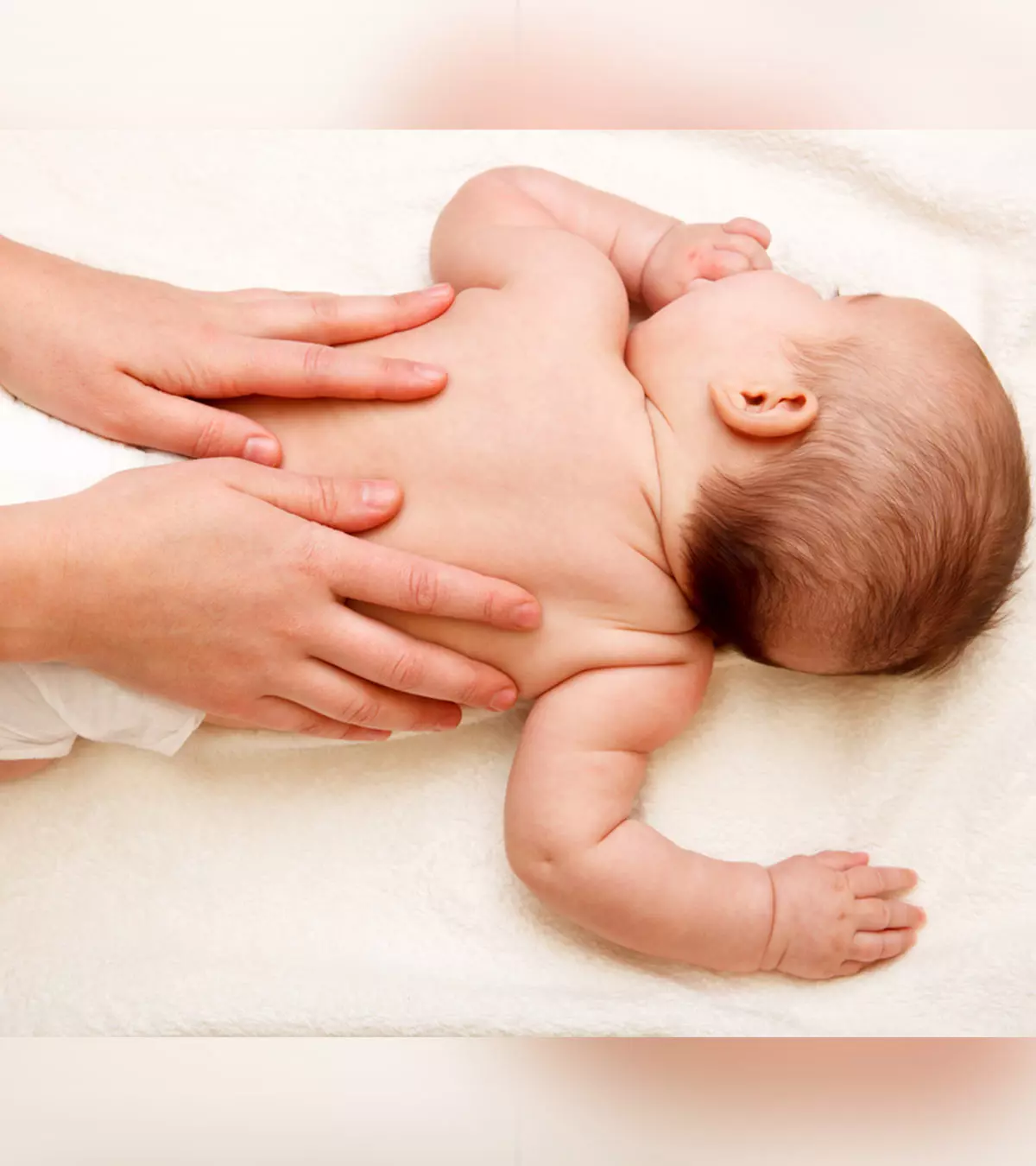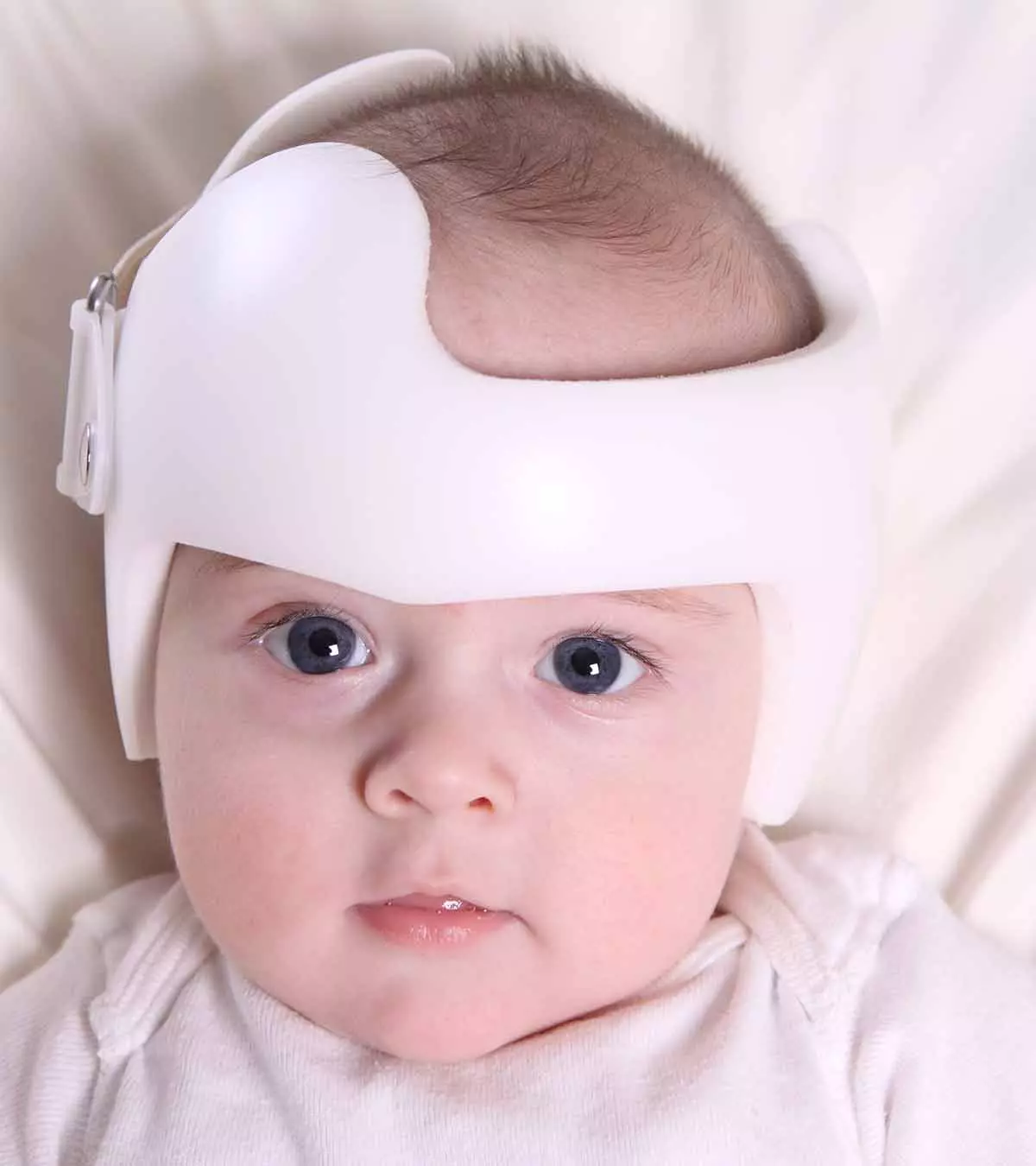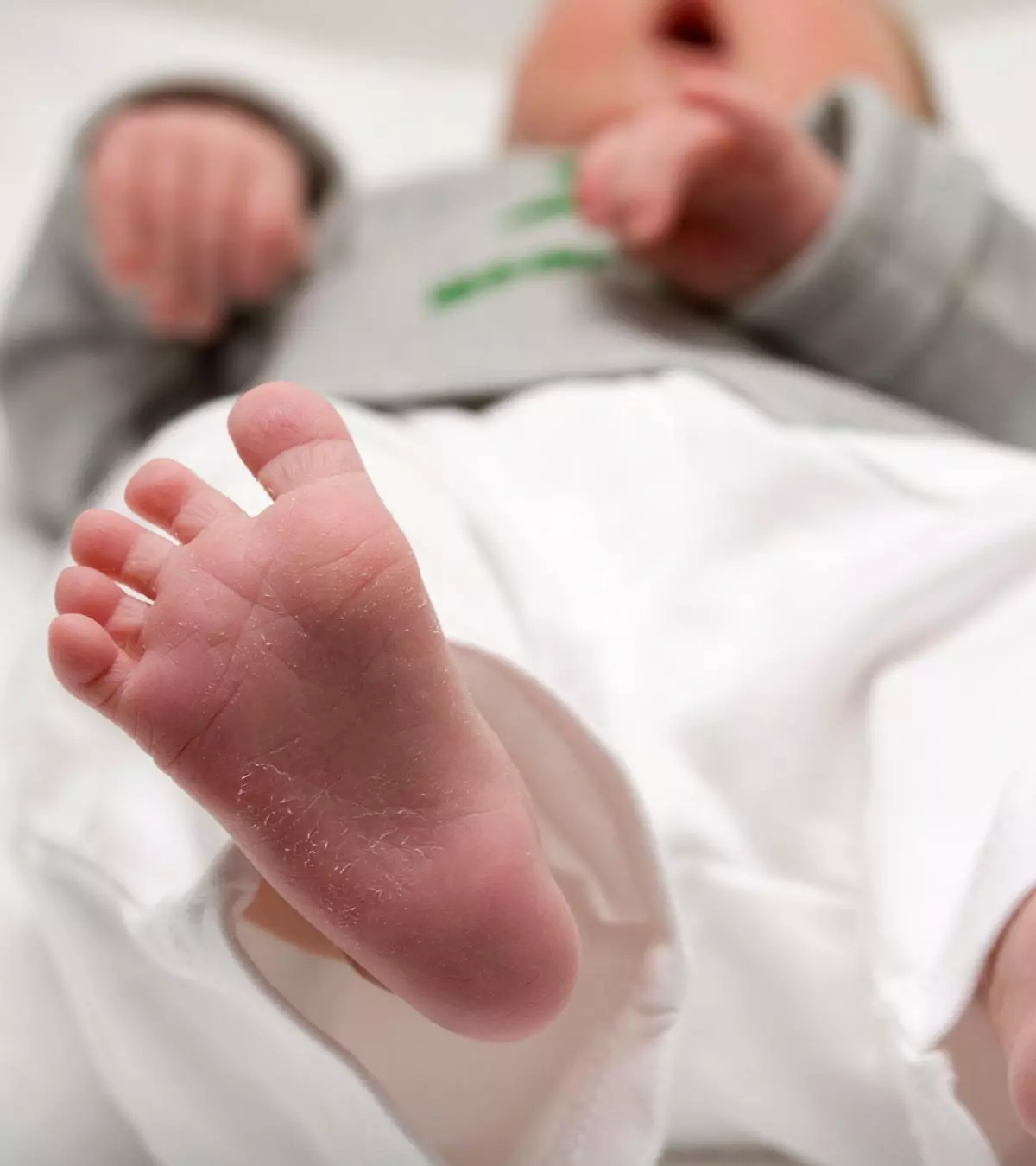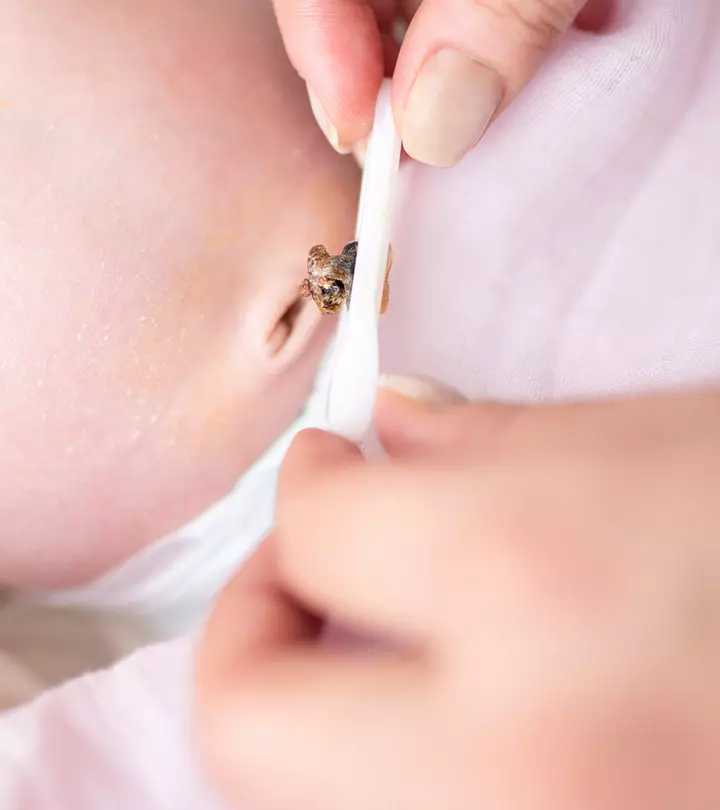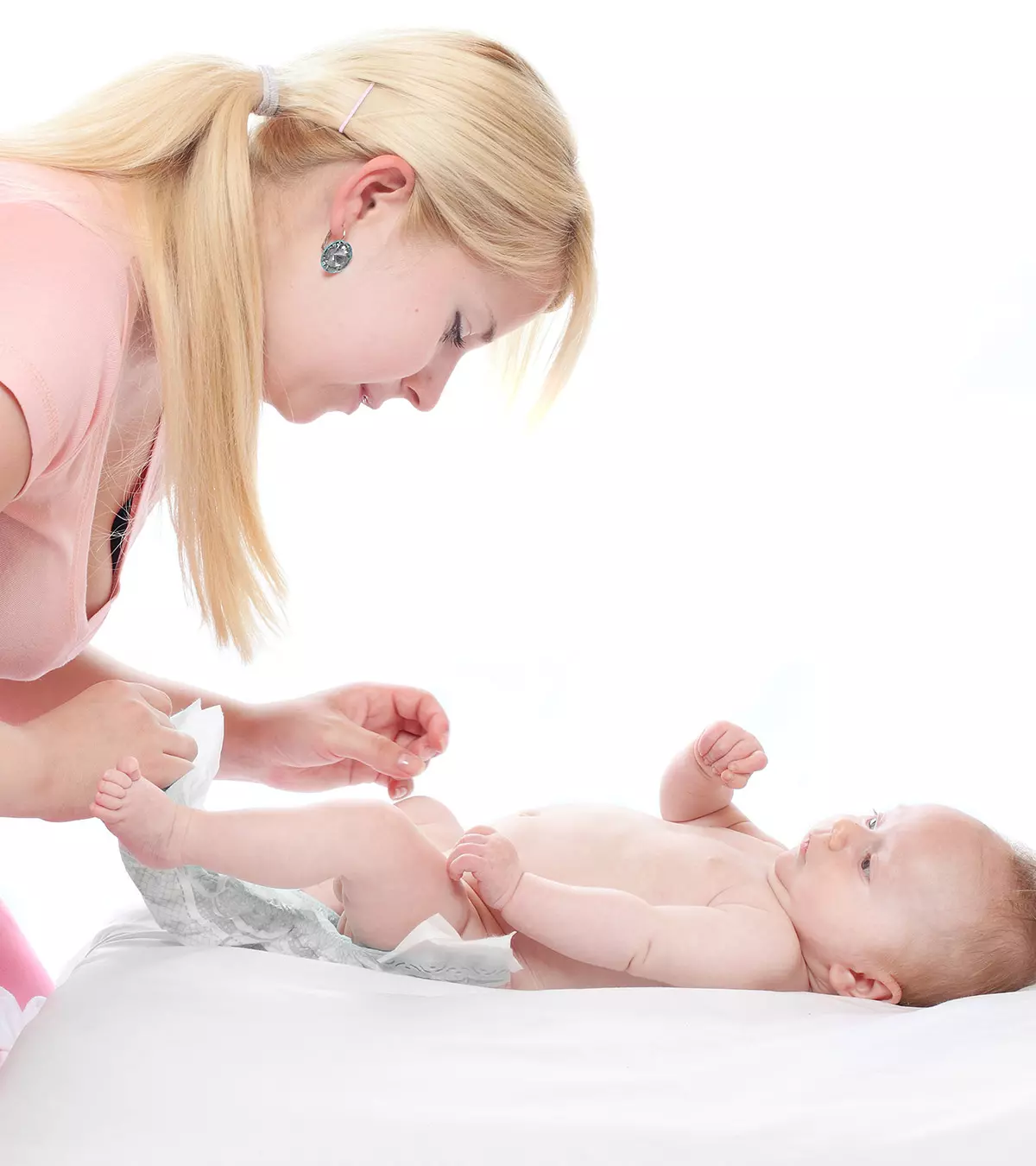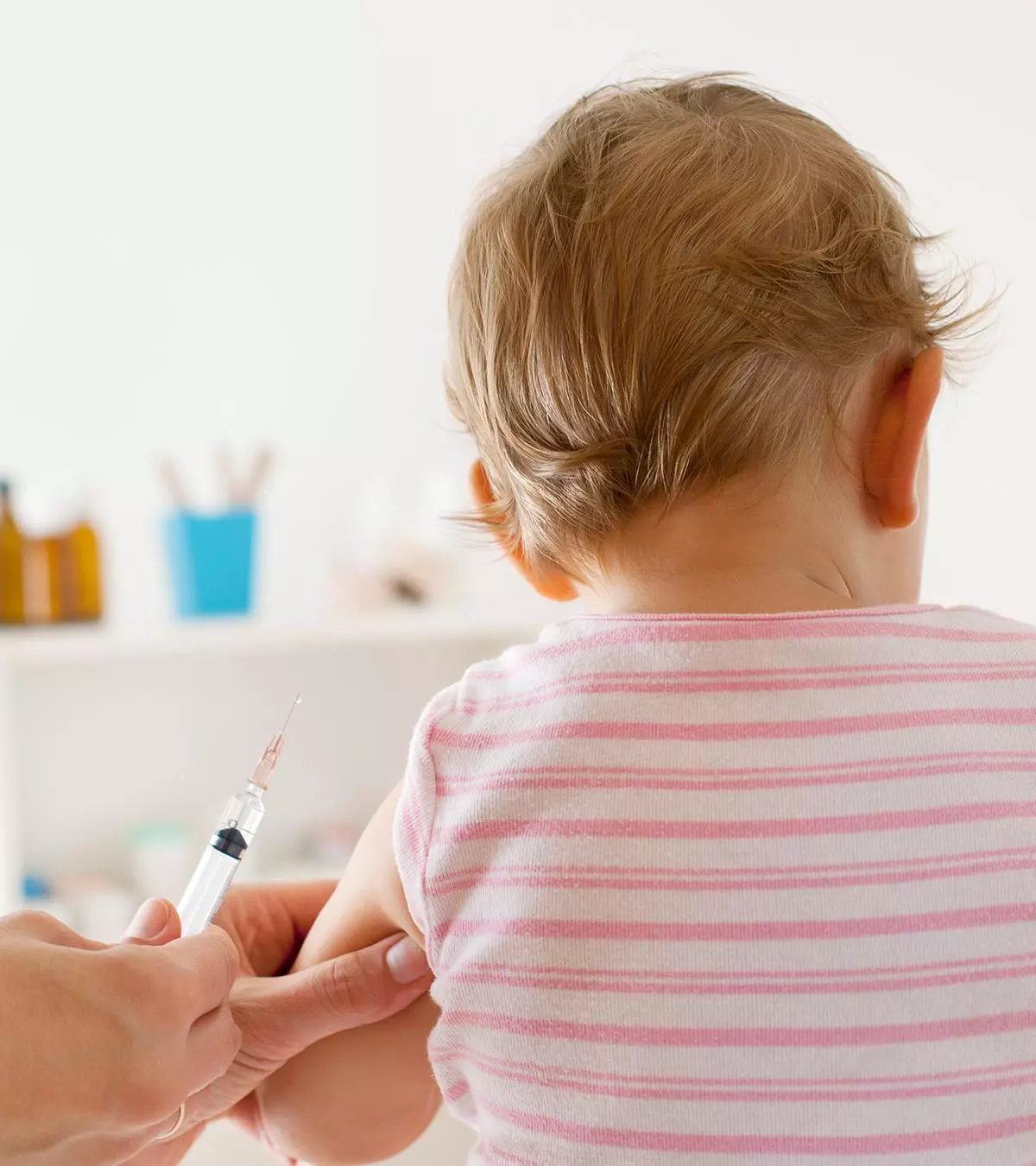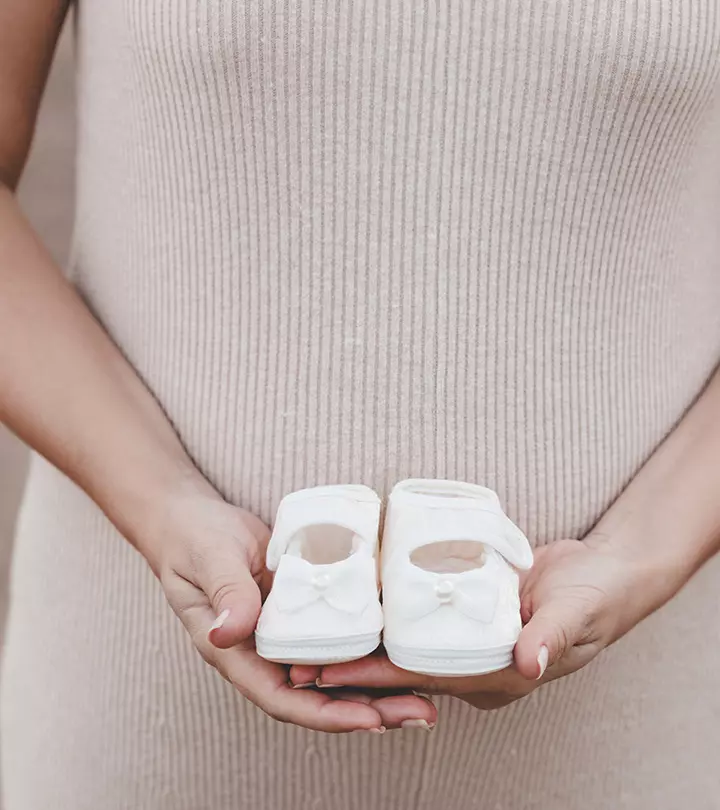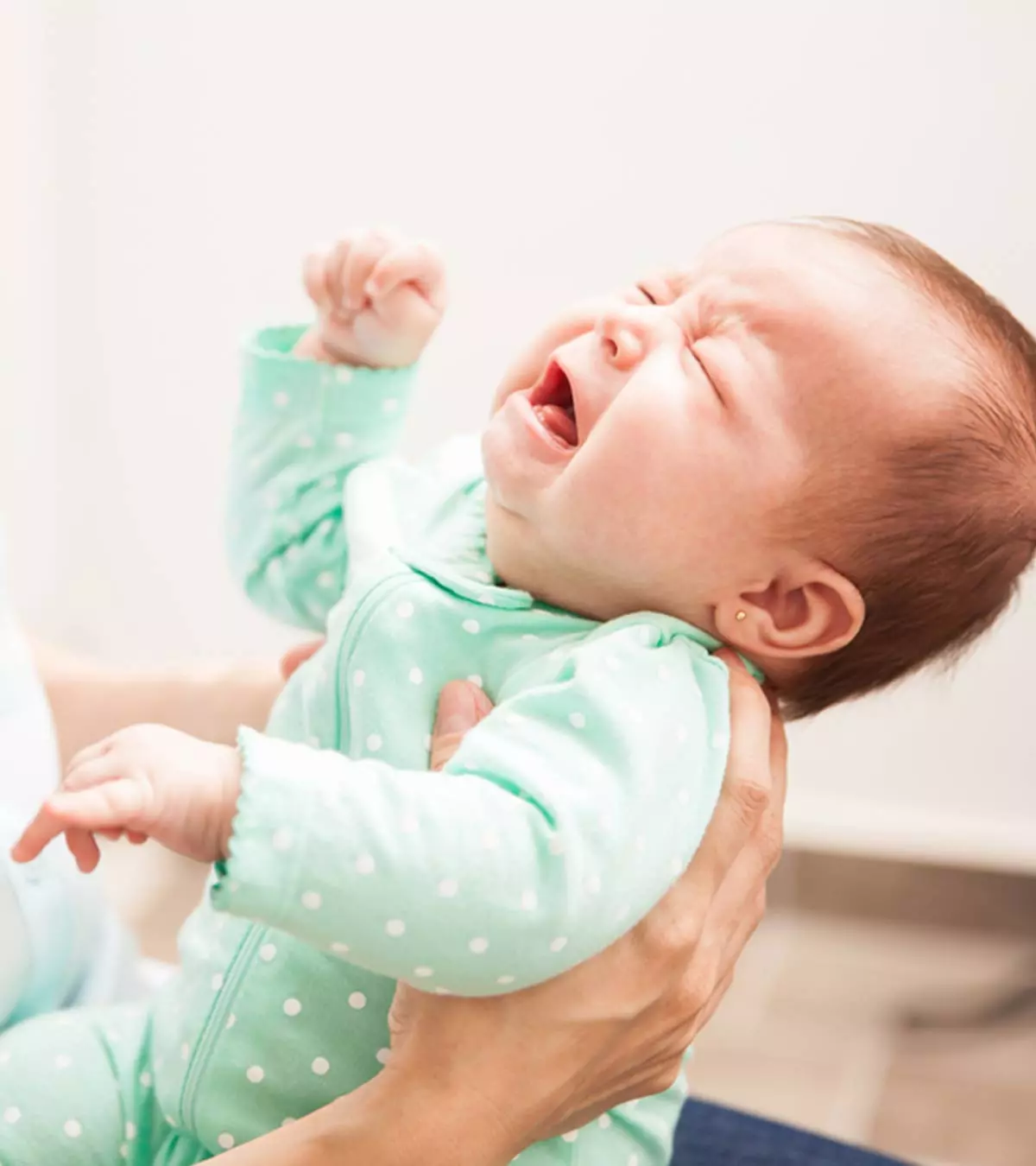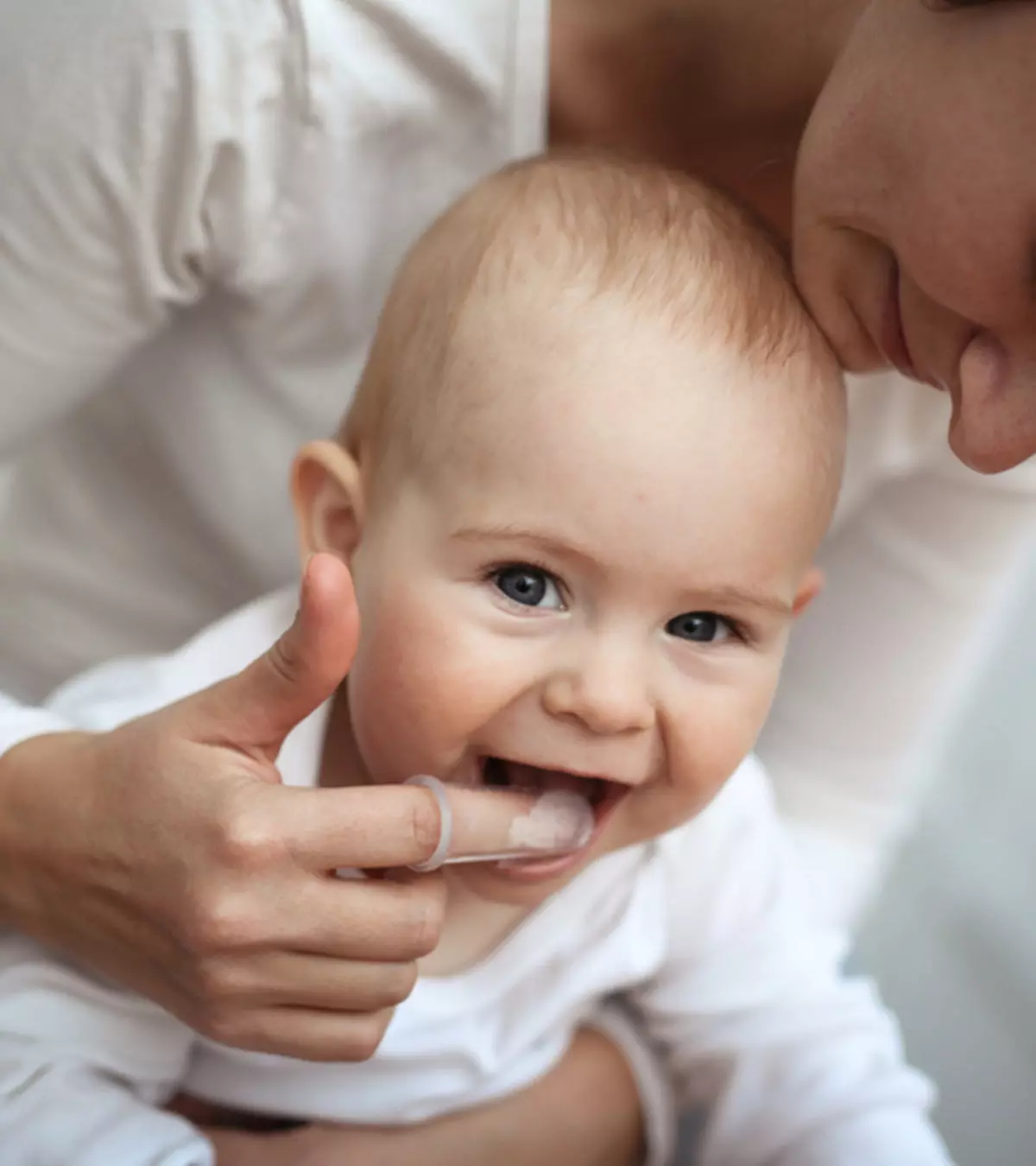
Image: ShutterStock
Many parents seek pediatric care for teething and diarrhea during their baby’s teething period. Most babies begin teething when they initiate complementary feeding while weaning from breast milk and infant formula.

Although it can be exciting to see your little one getting their teeth, many babies experience discomforts such as gum pain, drooling rash, and sleep disturbances. In addition, some babies get diarrhea during teething.
So, does teething cause diarrhea? Read on to know more about the causes and treatment for teething and diarrhea and when to see a doctor.
Key Pointers
- Teething and diarrhea may occur simultaneously because the transition to solid foods occurs during teething.
- While diarrhea could be due to food insensitivity or microbial illnesses, teething is a part of the baby’s growth.
- Finger foods and gentle massages may help relieve pain due to teething, while doctors may treat diarrhea in infants based on the cause.
Is There A Correlation Between Teething And Diarrhea?
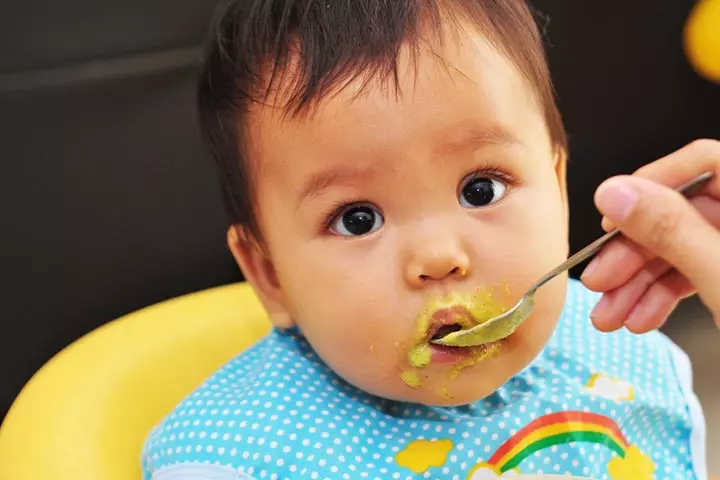
Many parents often ask ‘can teething cause diarrhea?’ According to the American Academy of Pediatrics (AAP), teething does not cause diarrhea (1). Teething and diarrhea are often coincidental since infant teething usually begins around the same time when they start consuming solids. On average, babies may have their first tooth eruption (either of the two front teeth) by four to seven months of age (2). During this time, the transition of the baby from breast milk or formula to solids may lead to diarrhea as the baby’s sensitive digestive system adjusts to the dietary changes.
Also, around the age of six months, babies lose their maternal antibodies, making them vulnerable to infections, which may cause diarrhea. The watery stools or diarrhea in such cases can be a sign of severe infection (3) (4). All these simultaneous events could make the parents or caregivers assume that teething causes diarrhea.
What Are The Symptoms Of Teething And Diarrhea?
Babies display specific symptoms of teething and diarrhea, as elaborated below (3).
Symptoms of teething
- Biting and gnawing: Baby teething is a challenging phase that causes gums to turn tender, sore, and painful. A baby tries to self-soothe by biting and sucking. Parents and caregivers can try alleviating teething discomfort by gently massaging the sore gums with a clean finger or letting the baby chew on finger food, a teether, or a wet washcloth.
The teething process can cause discomfort and irritability in babies. Amber, a mother of three, shares her daughter’s experience managing the pain of emerging teeth. She says, “Still working on her two bottom teeth. She (her daughter) is busting them both at the same time- and sweet girl is working them with her mouth, tongue, lips, and anything she can get her hands on to stick in her mouth. You can see those teeth just barely under the gums. Won’t be long (i).”
- Cheek rubbing and ear pulling: Babies rub their cheeks and pull their ears due to the irritated gums. They usually do it when they are getting their molars.
If your baby has a fever and they are pulling their ears, it may be a sign of an ear infection and not merely teething.
- Drooling: Teething babies drool a little excessively to soothe their tender, inflamed gums. However, trouble swallowing and excessive drooling in babies could indicate an underlying health concern (5). The baby may also develop a drooling rash since their delicate skin around the mouth stays constantly wet.
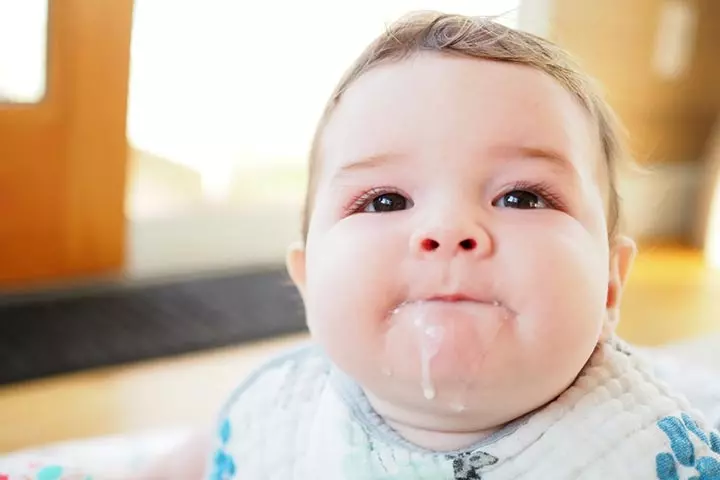
- Mild irritability: Inflammation and tearing of the gums during teething cause pain that can irritate a baby. This irritation could be accompanied by other symptoms, such as fussiness, disturbed sleep, and loss of appetite.
- Low-grade fever: Teething may increase the baby’s body temperature slightly. A low-grade fever has a temperature range of 98-100°F. A fever temperature of 100.4°F or higher could indicate an underlying problem.
Many of the teething signs and symptoms could also occur in other serious conditions or diseases. Consult a pediatrician to find out the precise cause.
 Caution
CautionSymptoms of diarrhea
A breastfed baby usually passes soft, lumpy stools that are light yellow. A formula-fed baby passes yellow to tan-colored stools similar in appearance to peanut butter (6). In healthy, growing babies, a greenish tinge to poop is normal, and the color may further vary if the baby eats solids.
Babies with diarrhea will have loose stools that may cause the diapers to leak. A baby may pass watery stools many times a day, depending on the underlying cause.
One or more of the following types of stools may indicate a underlying problem:
- Whitish or clay-like stools
- Stools with mucus or blood
- Large watery stools
- Frequent soiling
- Defecation immediately after each meal (after 6 months of age)
- Unusually foul smelling stools
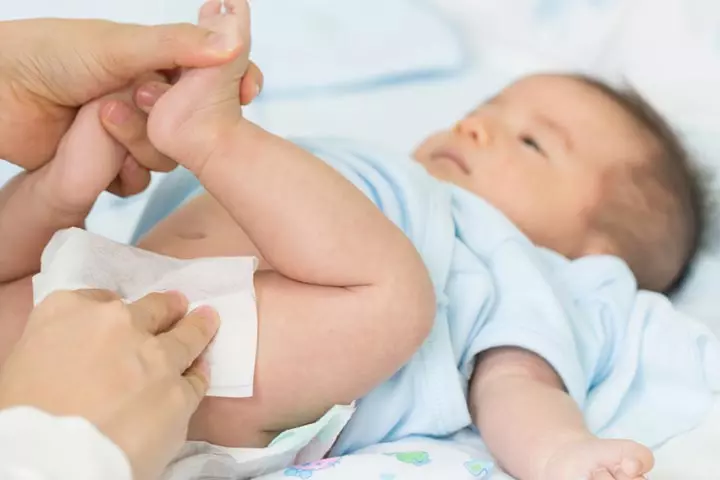
- Fecal matter containing worms
- With associated problems like abdominal pain, excessive crying, fever, vomiting, poor appetite, redness around the anal region
There is no association between teething and diarrhea in babies. However, if your baby has diarrheal symptoms, especially viral diarrhea, it can last up to one to two weeks. It is vital to note that severe diarrhea lasts only one or two days. Therefore, you should contact a doctor if your baby shows symptoms beyond two weeks (7).
What Are The Possible Causes Of Diarrhea?
Diarrhea during teething may occur due to the following reasons.
- Viruses and bacteria: Viruses, such as rotavirus, and bacteria, such as salmonella, (which, according to a WHO report, is one of the four key global causes of diarrheal diseases), can cause infections that lead to diarrhea (8) (9). These infections also cause other symptoms, such as fever and vomiting. Babies can get a viral or bacterial infection due to the ingestion of contaminated foods and drinks.
- Food intolerance or sensitivity: Changes in breast milk composition due to maternal diet or changes in the baby’s diet, such as using a different formula or introducing solids, may cause diarrhea (9). Diarrhea may also occur due to food allergies, which can cause other symptoms, such as wheezing, coughing, and hives. Cow milk allergy and lactose intolerance are common causes of recurrent diarrhea in babies and toddlers. Additionally, the introduction of potentially allergenic foods such as eggs, poultry, and peanuts may also cause diarrhea during the teething phase in babies.
- Medications: Some medicines, such as antibiotics, may irritate the gastrointestinal lining and cause loose, watery stools. Diarrhea usually resolves once the medication is stopped.
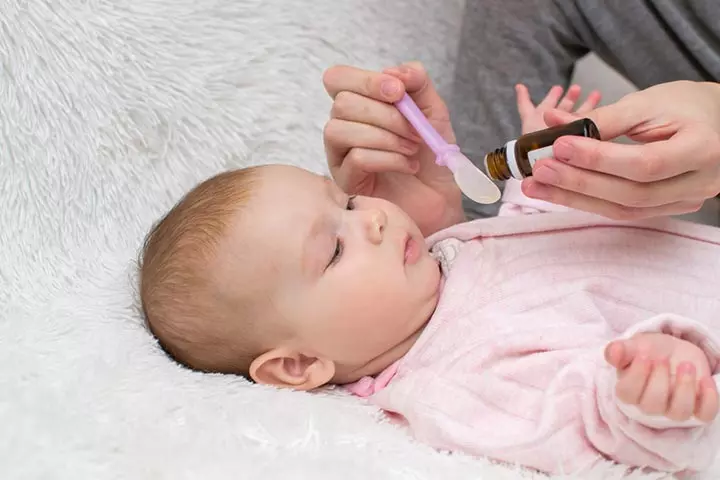
- Others: Several other conditions can also lead to diarrhea in babies. A few notable examples are parasitic infections, such as giardiasis, and gastrointestinal disorders, such as irritable bowel syndrome.
Some babies may have occasional diarrhea for no apparent reason. If the baby is healthy, eating well, and gaining weight, there is nothing to worry about. If the diarrhea is persistent and the baby has other symptoms, such as fever, consult a pediatrician to avoid complications, such as severe infection, dehydration etc.
How To Treat Diarrhea And Teething Pain In Infants?
The following are the treatment measures for teething and diarrhea, respectively.
- Treat diarrhea: The cure for diarrhea will depend on the treatment of the underlying cause. Consult a doctor once the baby develops diarrhea for early diagnosis and treatment of the problem. Healthcare providers recommend continued breastfeeding or formula feeding to a baby with diarrhea to prevent dehydration. You may also offer small amounts of water or oral rehydration solution after consulting a doctor. Again, natural probiotics like curd and buttermilk may help. A raw banana and rice-based diet may also help in controlling diarrhea.
- Relieving teething pain: Among the many teething remedies, offering finger foods, such as cooled cucumber sticks and breadsticks, is a healthy option. You can also gently massage your baby’s gums with a clean finger or a moist gauze pad occasionally. You can also give your baby teething rings for pain relief, provided the ring is made of firm rubber. Consult a pediatrician if you wish to use over-the-counter (OTC) medicines, or home remedies to alleviate teething pain (2).
The US Food and Drug Administration (US FDA) discourages the use of homeopathic medicines and teething jewelry to relieve teething pain since these products could be harmful (10).
 Caution
CautionWhen To Call A Doctor?
Repeated vomiting in babies with or without trouble swallowing is a condition that warrants prompt medical attention. You should also see a pediatrician urgently when (11).
- Baby is younger than six months and passing stools more frequently than usual
- Diarrhea is present for more than a day
- Blood in stools
- More than one spike of fever

 Be watchful
Be watchfulTeething and digestive issues are common reasons for a pediatric visit during the different stages of teething. Babies may often get diarrhea when they begin their solid diet, and they may lack maternal antibodies from breast milk around six months of age. Both these reasons contribute to diarrhea around the teething time, and it is often misunderstood as ṭo cause diarrhea. You may observe food intolerances and avoid ingredients that cause gastrointestinal issues, and treat diarrhea and teething pain if needed. Further, take necessary precautions to avoid dehydration due to water loss from the body.
Frequently Asked Questions
1. What do teething poops look like?
Babies can have slightly loose stools during teething due to swallowing excess saliva. Foul-smelling or watery diarrhea may indicate gastrointestinal infections, requiring timely medical care to prevent dehydration (3).
2. Does baby teething diarrhea go away on its own?
Loose stools due to excess salivation may get better when the teething symptoms such as excess drooling disappears. However, if your baby has diarrhea due to other causes such as bacteria or viruses during teething, they resolve to depend on the cause. Some babies may require medical treatments to get better.
3. What foods should be avoided if a baby has teething and diarrhea?
Diarrhea during teething may intensify if a baby is fed fruit juices and foods they are intolerant towards. Avoid giving sugary drinks to your baby as they may worsen diarrhea. A child with lactose intolerance should not be given baby formulas that contain animal-derived dairy products, such as yogurt, milk, or milk solids. However, foods such as apple sauce, yogurt (dairy-free in case of lactose intolerance), cold fruit purees, and teething biscuits can be given after the baby is checked for allergies (12).
Diarrhea often resolves on its own with home care especially in older babies (more than six months old). But if the character of the stool is as described above or if it is associated with any condition mentioned in the article or if the diarrhea for a long time, do not hesitate to see a doctor to determine the precise underlying cause and get appropriate advice.
Infographic: What Causes Parents To Believe Teething And Diarrhea To Be Interlinked?
While research disapproves of any direct correlation between teething and diarrhea, many parents still believe teething and diarrhea to be associated with one another. Check out the concurrent events mentioned in this infographic to understand what has led to this notion amongst many parents.
Some thing wrong with infographic shortcode. please verify shortcode syntax
Illustration: Teething & Diarrhea In Babies: Symptoms Causes & Treatment

Image: Dall·E/MomJunction Design Team
Does your baby have diarrhea without a fever? The following video may help you understand what’s happening and how to help my baby.
Personal Experience: Source
MomJunction articles include first-hand experiences to provide you with better insights through real-life narratives. Here are the sources of personal accounts referenced in this article.
i. Baker Bree | 6 months;https://themasseyspot.blogspot.com/2016/01/baker-bree-6-months.html
References
1. Teething; AAP
2. Teething: 4 to 7 Months; AAP
3. Your Infant is Teething: Know the Signs and Symptoms; Children’s Hospital Los Angeles
4. Pamela DenBesten, Is teething associated with diarrhea?; NCBI
5. Drooling and Your Baby; AAP
6. Diarrhea in Babies; AAP
7. Diarrhea (0-12 Months); Seattle Children
8. Salmonella (non-typhoidal); WHO
9. Diarrhea in infants; Medline Plus; US National Library of Medicine
10. Safely Soothing Teething Pain and Sensory Needs in Babies and Older Children; USFDA
11. Signs of Dehydration in Infants & Children; AAP
12. Teething 101: 4 Pediatrician-Approved Ways to Soothe a Teething Baby; Cleveland Clinic
13. Teething; Seattle Children’s
14. Tips for helping your teething baby; NHS
Community Experiences
Join the conversation and become a part of our nurturing community! Share your stories, experiences, and insights to connect with fellow parents.
Read full bio of Dr. Pooja Parikh
Read full bio of Swati Patwal
Read full bio of Rohit Garoo
Read full bio of Anindita Ghatak







